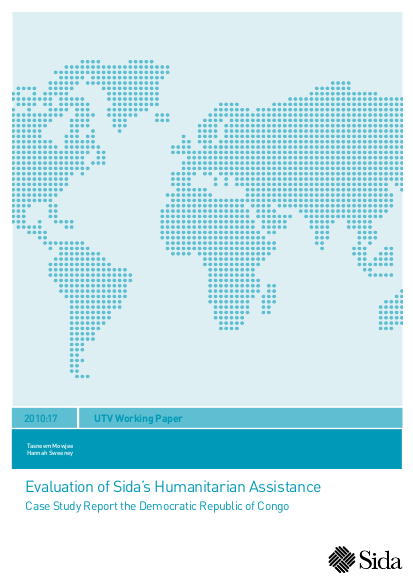
This case study forms an integral part of the overall Evaluation of Sida’s Humanitarian Assistance from 2005–2010. It focuses primarily on Sida’s funding, advocacy and policy work in the Democratic Republic of Congo (DRC), analysing how this work is contributing towards meeting the 8 sub-goals of Sida’s Humanitarian Strategy, and attempting to learn lessons from this work to inform Sida’s future humanitarian programming.
The evaluation is not intended as an assessment of the performance of specific funding instruments in DRC1. It is instead an assessment of whether the various funding instruments employed by Sida in DRC are helping Sida achieve the goals of its own humanitarian strategy. The case study also evaluates Sida’s organisational structure, its policy promotion and its accountability arrangements in DRC, and their impact on the effective implementation of the humanitarian strategy.
The final task of the case study was to ask beneficiaries and the operational humanitarian community in DRC to describe the “elements of effective humanitarian assistance” – elements that, now collated, will help support the development of Sida’s next five-year humanitarian strategy.